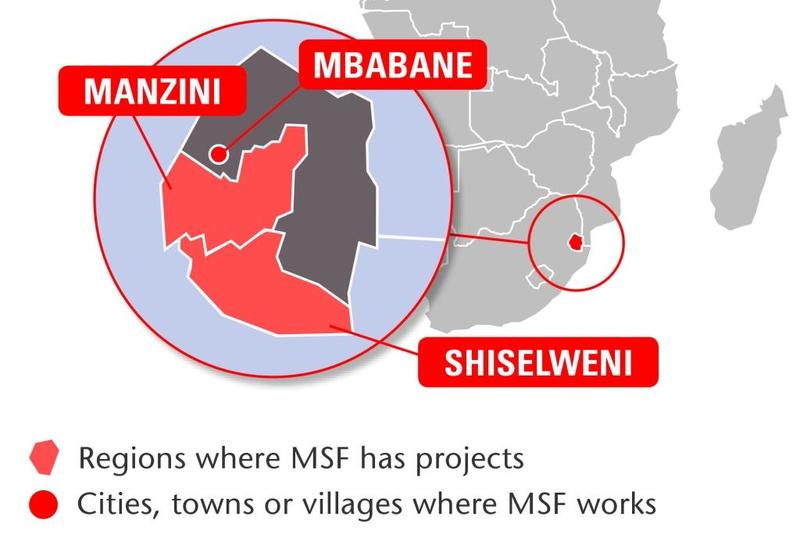The landlocked southern African kingdom of Swaziland is one of the world’s last remaining absolute monarchies.

King Mswati III - on the throne since 1986 - rules by decree over his million subjects.
Swaziland is struggling to cope with the dual epidemic of tuberculosis (TB) and HIV.
It has the world’s highest incidence of TB, and the number of people with drug-resistant forms of the disease (DR-TB) is increasing. Furthermore, around 80 per cent are co-infected with HIV.
Médecins Sans Frontières/Doctors Without Borders has been working in Swaziland since 2007. Through decentralised care and innovative treatments, we are helping people with TB and HIV live longer, healthier lives.
[[Country-Facts]]
MSF’s work in Swaziland: 2015
During 2015, MSF continued to improve access to diagnostics and treatment for HIV and TB patients through decentralised and integrated care and innovative approaches.
Responding to the growing number of extensively drug-resistant TB (XDR-TB) cases in the country, MSF advocated the introduction of new drugs (bedaquiline and delamanid) in 2014.
In 2015, staff started treating XDR-TB patients with these in combination with repurposed drugs – a major change for these patients. By the end of the year, 22 XDR-TB patients were on this treatment programme in MSF projects in Manzini and Shiselweni.
[[nid:423]]
Shiselweni
MSF teams in Shiselweni continued to support the integration of HIV and TB care in 22 community-based health clinics. As part of this support, we have been operating 20 point-of-care mini-labs since 2012.
In 2015, these labs carried out 47,842 biochemistry tests, 19,340 CD4 tests and 30,726 viral load tests – which measure the amount of HIV in a sample of blood and are the strongest predictor of HIV progression.
To improve adherence to treatment, we have trained people living with HIV as ‘expert clients’ or lay counsellors to work with patients.
Since 2013, we have been carrying out research into thin layer agar, a drug sensitivity test for multidrug-resistant TB treatments that would cost less and provide a more sustainable option for the region than the mycobacteria growth indicator tube (MGIT) typically used.
Manzini
In Matsapha, the industrial heart of Swaziland, where HIV prevalence is the highest, we continued to offer comprehensive healthcare with integrated HIV and TB services.
In 2015, our teams carried out 34,101 consultations, ranging from maternity care, infant immunisations, family planning, general outpatient services, and medical and psychosocial care for victims of sexual violence, as well as HIV and TB treatment.
MSF also supported TB drug-resistance diagnostics at the National TB Reference Laboratory. In Matsapha and Mankayane, alongside the standard 20-month regimen for DR-TB patients, the team continued the roll-out of the nine-month regimen, as part of an observational study. The results so far are promising.
MSF launched a new project, supporting the national TB hospital in Moneni, the referral hospital for DR-TB in the country. A key aim of the programme is to strengthen outpatient care. By the end of the year, the team had treated 117 DR-TB patients.
Find out more in our 2015 International Activity Report




